|
Welcome Danika! Thanks for taking some time to chat about writing. First, a few quick-fire questions: Snow or sand? Big dogs or small dogs? And which of your favorite foods has been difficult or impossible to get since COVID started? Snow or Sand? Snow. Big dogs or small dogs? Big dogs. *whispers* …or small dogs. SORRY! I can’t choose on that one. As for the food that I miss that I haven’t been able to get since lockdown, it would have to be movie theatre popcorn. (And movies, to be honest!) "Big dogs or small dogs? Big dogs. *whispers* …or small dogs. SORRY! I can’t choose on that one." Many writers are unsure of the next steps once they have completed their first novel. They might wonder whether to query agents, reach out to smaller publishers, or look into options for self-publishing. What was your journey of becoming an author like and is there any advice you have for writers who are just at the beginning of their careers? My journey is pretty unique to me… which makes it completely NOT unique for a writer. That’s something I’d remind every young author. It doesn’t matter how much you plan it out, the journey to publication is going to be different for everyone. My second piece of advice is: finished is better than perfect. As for my own journey, I started out with a book that I wanted to publish. I queried for months, and although I got plenty of good feedback from agents who looked at it, I didn’t have anyone willing to sign. I wrote more books… time passed. And when I felt that I had a manuscript that was even better than my first, I queried again. This time I had a number of agents reach out, and I ultimately signed with my first agent: Morty Mint of Mint Literary here in Canada. "It doesn’t matter how much you plan it out, the journey to publication is going to be different for everyone. My second piece of advice is: finished is better than perfect." We had a really good run together for about five years and Morty sold a number of my titles. One interesting fact is that while Morty was putting my thriller Edge of Wild (Stonehouse, 2016) out on sub, I sent a completely different novel, All the Feels (Macmillan, 2016), in the young adult genre, into an open submission… and it was selected for publication by Macmillan. Suddenly I had two books, in two completely different genres, and they were BOTH getting published the same year. "One interesting fact is that while Morty was putting my thriller Edge of Wild (Stonehouse, 2016) out on sub, I sent a completely different novel, All the Feels (Macmillan, 2016), in the young adult genre, into an open submission… and it was selected for publication by Macmillan." In the time since 2016, Morty has retired and I signed with my current agent, Moe Ferrara of BookEnds Literary. I have several more YA and thrillers out, and I’ve had many successes along the way. One thing I was particularly proud of was having Switchback selected as one of the “Best YA Books of 2019” by the Canadian Children's Book Centre. See? Different paths… different journeys… all with the same end result: publication. You have been able to find success with titles in both YA and Adult Mystery. A lot of ‘new’ writer advice suggests finding one genre and sticking with it. How were you able to navigate writing in two very different styles of books while maintaining your brand and identity as an author? For me, the book tells me what genre it is, and I just follow the characters along, scribbling as fast as I can. Once I hit flow, I find it quite easy to stay in the right “voice”. My thrillers are suspenseful and highly descriptive. My YA are edited down to the bone, with dialogue taking a much bigger role. I don’t consciously think about these differences as I write. They just naturally occur. As to “sticking to one genre” I happen to like exploring and writing in multiple genres—in fact, I just put a science fiction novel out on sub—so I’ve never really tried to limit myself. This works for me, but I could see it being a challenge for some authors. Again, I think whatever works… works. My brand is a Canadian author who happens to write multiple genres. It does require a little bit of tone-shifting during promotions for books, since my thrillers are quite dark. Strangely though, I’ve got readers who follow me quite avidly and read books by me in both genres. That always feels good! "For me, the book tells me what genre it is, and I just follow the characters along, scribbling as fast as I can. Once I hit flow, I find it quite easy to stay in the right 'voice'." Perhaps the most grueling aspects of being a writer is just that: writing! As an author who has finished and published more than a half-dozen books, can you share a bit about what drives you? Are their routines that help you stay productive? Is it a natural part of you or did you have to train yourself into that level of productivity? Writing gives me joy, so I find it quite easy to write and I’ll often lose track of time while writing. When I’m editing, however, I have to fight for every word. In those times, I set an alarm early and write before anyone else in my house is awake. I make myself complete a thousand words a day. It’s not actually that much, but it adds up quickly. Yes, part of this is training, but it comes down to the fact that I look at writing as a job. You have to get the words down and the only way to do it is to sit down and WRITE. I make my deadlines—all of them—and I remind myself that you can always edit garbage, but not blank pages. "You have to get the words down and the only way to do it is to sit down and WRITE. I make my deadlines—all of them—and I remind myself that you can always edit garbage, but not blank pages." Many of your books, including All the Feels, Internet Famous and Ctrl Z, explore how our lives online often intersect, overlap, and collide with our lives in the physical world. As a writer, what interests or concerns you most about the newer technologies that are emerging today? I am mostly quite technology-positive (if that’s even a word :), though I am quite careful about where I go online and what access I provide to strangers. Of course I have very serious concerns about things like the dark net and piracy and identity theft, but in a broader sense, my biggest concern is about how everyone interacts. To explain, when people wear a mask as an anonymous poster, they behave more horribly than they ever would be in person. You see it all the time with people being harassed, doxed and threatened. THAT lack of empathy, to me, is one of the biggest dangers. We have both spent time living near and exploring the Canadian Rockies. It seems that their impression has also made its way into our fiction! What other aspects of being a Canadian have influenced your work and what unique contributions do you think Canadian authors bring to the international writing scene? Since Macmillan is based in the US, I have a list of “Canadianisms” that I carefully and studiously remove from my early drafts. Overall, however, I simply assume that my perspective as a Canadian is intrinsic to my work. Many of my novels take place in Waterton Park, AB, where I grew up, and the whole sense of place—the mountains and the forests—is a character unto itself. My particular perspective, as someone who loves and wants to preserve the untouched areas of Canada, certainly filters into what I write. In a bigger sense, I think that Canadian writers as a whole have brought the Canadian perspective to the world. I’m proud to be part of that tradition. Can you give us a sneak peek of what your next major project will be? Any hints or perhaps a little snippet to get readers excited? Sure! I’m currently writing a ghost story. It has no title (as of yet), and the ghost rarely listens to my direction, but I’m having a blast writing him. Here’s a snippet: Too late, the dial tone buzzed in his ear, and he swore, setting the handset back into the cradle. There was no message; Grant didn’t have a machine for the house line. Whoever it was would have to call back. He hoped it was Caleb. The two of them needed to talk. There were chores to be done, and one person alone couldn’t do them. Grant winced. As angry as he was, he was going to have to come halfway on this, or there’d be no way for the farm to make it to spring. There was no money for a hired farmhand. It was him and Caleb working together or nothing. No use worrying about it. Just need to-- A faint creaking noise, like someone had opened a bedroom door on the second floor, interrupted his thoughts and Grant’s eyes widened. The house was empty… wasn’t it? “Caleb…?” Wind howled around the eaves in reply, while upstairs whatever it was had gone silent. The kitchen where Grant stood was cloaked in darkness, the only light sifting through the windows from the porchlight outside the window. Everything in the room shone blue and purple, black shadows stretching ominously into corners and up walls. An icy finger ran the length of Grant’s spine. “Just the wind,” he muttered uneasily, his voice loud in the quiet room. “Nothing to worry ab—” Another sound, like a scuffling footfall, interrupted. Grant’s chin bobbed and he looked up. A single floor divided him from Logan’s empty bedroom. It was the same room the boy had occupied from a week after his birth until the previous summer (and the awful day that so often visited Grant’s nightmares.) The bed and dresser, pictures and coverlet were the same as they’d been many months before, his absence preserved like a leaf between two pages of a book. Grant swallowed hard. I’m tired tonight. Done too much work. Ain’t slept in days. Another footfall echoed. Grant stumbled backwards, his legs banging against the cupboard in his haste. That sound had come from Logan’s room. No question. Between him and whatever had made the sound was a thin layer of plaster, wooden joists, floorboards, then… what? Shaking, Grant took a single step away from the window. The whole house was dark, but it no longer felt empty. Wind rose again and something creaked in the upper floor. “Caleb,” he called tremulously, “is that you up there?” There was no answer. The hair rose on his arms as Grant forced himself into the darkness. The faint light from the window didn’t fill this part of the house and the kitchen light switch seemed impossibly far away. Heart pounding, he forced his limbs to comply. The sound had come from his late son’s room. He was almost entirely certain of that, but that could mean anything. Couldn’t it? He reached the far wall and flicked on the light. A warm golden glow filled the kitchen and he let out a slow breath. It felt normal again. Fine even. Dirty dishes from the night before filled the sink, empty beer bottles lining the counter. Grant grimaced. Nothing at all. Freaking myself out over nothi-- A crisp footfall snapped directly overhead. Grant’s heart jumped to his throat, his chest heaving with barely constrained panic. What if there’s a prowler in the house? his mind demanded, but that made no sense. Unless… unless… The floor above his head creaked again—heel, toe, heel toe—and Grant’s stomach dropped. What if it’s Logan’s ghost? his mind whispered. What if he’s here… NOW? Last, but not least, where can readers find your books and keep up to date on your latest publications? My young adult titles are available almost everywhere books are sold. My thrillers are for the more discerning, so they’re available in some big box stores, but much more often in smaller indie bookstores. ALL of them can be found online! And if you’re ordering online, I’d encourage you to consider an independent bookstore rather than a massive chain. Indies really are the lifeblood of publishing. Details and information about upcoming releases is available on my website and on ALL of my social media accounts! Thanks for interviewing me, Josh! It was great to chat.
0 Comments
Welcome back Trey! It’s so great to have you back to talk about writing and your new book! As always, a few quick-fire questions: What is your favourite sequel of all time? What is the worst sequel of all time? And which stand-alone book or movie do you think deserves a sequel? Hi Joshua, and thanks for having me back! Whoa, great question, let’s see. This year I read both The Shining, and the sequel that I didn’t even know existed until the movie came out last year, Doctor Sleep. I’ve got to say, and maybe this is because The Shining has been too hyped up in my mind, but Doctor Sleep was better. A fantastic sequel, and a great book. "I’ve got to say, and maybe this is because The Shining has been too hyped up in my mind, but Doctor Sleep was better. A fantastic sequel, and a great book." Worst sequel is difficult though. There’s so many bad ones! Maybe Spiderman 3? I really loved the first movie with Tobey Maguire, and I didn’t mind the second one either. But by the third, I get what people were saying. It’s too weird. I think the Warcraft movie that came a few years ago deserves a sequel. I’m a big fan of the franchise, having played all the games since Warcraft I in the ‘90s, and I’ve read nearly all the books now. When the movie came, a lot of people were very excited, but I don’t think a single person in the world liked it. They just bit off more than they could chew, so I’d love to see them carry on with that and try to make something better. "I think the Warcraft movie that came a few years ago deserves a sequel. I’m a big fan of the franchise, having played all the games since Warcraft I in the ‘90s..." So since we met a few years back I learned a few things about you. One was that you grew up and worked in the same small city (Haugesund, Norway) that my family emigrated from. Tell us one thing most people don’t know about what it’s like to grow up in Norway! Sorry, I’ve got to correct you there, I didn’t grow up in Haugesund, but I have worked there on and off. It’s a beautiful little harbor town, if a little bit past its prime these days. If I was to try and describe it simply, I’d say growing up in Norway is simple. Simple and quiet. There’s not that many people, and we have a lot of space. I moved to the UK in my teens and remember being surprised by how huge the world really is, when you have millions of peoples, culture and society mixed in one place. It was an eye-opener, and I’d recommend it to anyone to move away from their tiny rural homestead for a while. "If I was to try and describe it simply, I’d say growing up in Norway is simple. Simple and quiet. There’s not that many people, and we have a lot of space."
The second book was definitely harder to write, no doubt. I like to think that’s because I tried harder, pushed myself harder and set a higher standard for myself. With the first book, I just sat down to write without giving it too much though, but with the second (and the third which will follow it) things have to make sense. That being said, I had the ideas for both book two and three straight after I wrote the first. They're in a series, though kind of separated from each other, but there’s an overarching story there that I had clearly in my mind as soon as book one was done. I think I wrote book two faster than one, and book three faster than both. You get to know your characters after a while, so it gets easier while still being difficult. "The second book was definitely harder to write, no doubt. I like to think that’s because I tried harder, pushed myself harder and set a higher standard for myself." You recently stated that, “My stories are always character-driven, because that’s where the conflict is, that’s where you can truly find excitement.” What are the ingredients of story-driving conflict and how can authors who can’t seem to get ‘the spark’ going fix it? The recipe for conflict in any story is simple:
"The recipe for conflict in any story is simple: (i) you need a goal, (ii) something that motivates that goal, and (iii) something that stops that goal being reached." The adventures of Agent Greer are high adrenaline narratives. However, just as in movies, it can’t all be explosions and car chases or else there is no narrative. (Ok, ok, yeah, Mad Max, I know…) So how do you keep up the suspense and tension without wearing out the reader? Peaks and valleys. I build up toward the excitement, pull back a little bit, and then turn it up again. I like to think about it like a horror movie: the idea that something might jump out at you is often scarier than the monster itself. I want to keep you at the edge of your seat, then give you some time to relax before we’re back to that edge. You write both horror novellas and novels which fall in the psychological thriller genre. How do you differentiate between horror and thriller? Second, what do you think readers (or writers) get wrong about the difference between the two? If everything goes according to plan, the next book I publish is a horror novella. In my eyes, thrillers are gripping and exciting, pulling you in and making you want to hurry on to the next page. Horror is terrifying and should almost have the opposite effect; you’re not quite sure you want to carry on reading, but you just can’t help yourself. Horror is more subjective however, and difficult to pin down which is probably one of the reasons the differences between the two become mixed. A lot of what Stephen King writes isn’t horror to me at all, yet he’s been the King (pun intended) for 50 years. "...thrillers are gripping and exciting, pulling you in and making you want to hurry on to the next page. Horror is terrifying and should almost have the opposite effect; you’re not quite sure you want to carry on reading, but you just can’t help yourself." Now that your sequel is finished, do you have another project on the go? Any plans for book three? Tempt us with some tantalizing hints if you’re willing to. I have this bad habit of drafting books much faster than I revise and edit them, so I usually always jump on a new thing while my books are with my editor or beta readers. Book 3, the final book in the series is written and being edited, and will hopefully be released faster than Book 2 was. I have a cast of three main characters, with Jordan Greer at the top, and each of my books has one of them in the center of the main conflict. In Book 3, it’s Greer who’s in trouble and that’s all I’ll say. Where can readers get a hold of your new book, A State of Despair? The ebook can already be pre-ordered on Amazon and the paperback will go live on December 1. Links to those can be found all over my social media and website of course, and for readers who just can’t wait, I’m still handing out a few advanced review copies over at TreyStone.com. Get one before they’re gone!
"When I’m feeling fancy: prosciutto and fresh arugula. When I’m feeling basic: pepperoni." As a writer of thriller and fantasy, you know how to get the reader’s adrenaline pumping. What common pitfalls have you encountered, either through your own development or through reading others’ work, when writers try to amp up the tension but end up falling flat? Several things can make the tension fizzle. The first that comes to mind is info-dumping or excessive flashbacks / background in the midst of the action. If you want to maintain the tension throughout a scene, you have to stay as much as possible in the present moment. I’m currently reading Crescent City by Sarah J. Maas and am thoroughly enjoying it, but I nearly put it down in the first five chapters because it felt like every other moment in the scene was interrupted by detailed backstory. It’s something I have had to work on with my writing as well. Ninth House by Leigh Bardugo is a good example of how to keep the tension going, with backstory woven in more subtly. "Several things can make the tension fizzle. The first that comes to mind is info-dumping or There are many new avenues open for authors to share and publish their work online but being an author today also comes with a whole new set of challenges. What strategies helped you find success as you built your audience online and off? As a first step, you have to identify what your goals are: do you have a published (or soon-to-be published) book that you’re ready to start marketing? Or are you more interested in building community at the moment? I, personally, am currently focused on community-building. I do my best to align my social media engagement with what feels good and authentic to me - my personal goal is to organically connect to readers and fellow writers. This means I gravitate toward the platforms I enjoy using, regardless of whether or not they have a good reputation for producing sales or click-throughs. Facebook, for example, is generally considered helpful, especially for indie writers, if you can learn how to leverage its targeted advertising system. But I do not enjoy Facebook. At all. So I prioritize my time on Instagram and Twitter, which perhaps aren’t as good at generating click-throughs, but are wonderful sources of inspiration and connection with fellow writers and readers. "I do my best to align my social media engagement with what feels good and authentic to me -
"Second, as clichéd as this may sound, you have to show up as you. What you see on my social media feed And last but not least, focus on building a positive and welcoming space on your social media feeds. We’re all inundated with negative news on a daily basis (now more than ever), so I try to provide as much entertainment and escapism as possible. To that end, the best decision I've made was to launch a newsletter. It has helped me connect more deeply to the wonderful people I've met online, and it allows me to give back to the community - every month, I run a book giveaway exclusively for subscribers, because I love sharing the books that I’ve enjoyed (recent giveaways included Ninth House by Leigh Bardugo, Neverwhere by Neil Gaiman, Sinner by Sierra Simone). I also share things that I love talking about with friends: trailers for upcoming movies or TV shows (especially thrillers and mysteries), books coming up soon that I’m excited about, and interesting articles about real-life stories that are stranger than fiction and could be great inspiration for thrillers. The key is that I love doing all of this - and because I’m talking about things of general interest, other people seem to be finding enjoyment or a bit of distraction from the newsletter as well. It may take some experimentation, but take the time to find the things you enjoy and focus on them. That way, it won’t feel like work. A while ago, I drafted a blog post answering this question with some more detail, in case it's helpful. Writing can be a lonely endeavor and it helps to have a community of writers around you for encouragement, critique, and, let’s be honest, to just blow off steam sometimes. You have established a healthy community of writers around you through your website and through Twitter events that you host. What advice do you have for writers who feel alone and are trying to connect with other writers? If you’re new to the twitter writing community, probably the best way to get started if you don’t know anyone is to follow some of the big writing hashtags. My favorites are #writingcommunity, #vss365, #indieapril, and #writerslift. The “vss365” tag stands for “very short stories, 365 days of the year,” and is a fantastic community of writers who craft single-story tweets based on a prompt word that the host of the month shares every day. I would start by supporting other writers on the vss365 tag - read their stories, like their tweets, and comment with words of encouragement. If you’re feeling brave, contribute your own stories! "I would start by supporting other writers on the vss365 tag - read their stories, like their tweets, and comment with words of encouragement. If you’re feeling brave, contribute your own stories!"
If you are an introvert, or have social anxiety or otherwise feel uncomfortable being very open and communicative on social media, I completely understand that “Have fun!” isn’t going to be doable for everyone. Please don’t feel like you have to push yourself to be someone or do something that goes beyond your comfort zone. If you feel comfortable with a more limited form of engagement, you could start simply by reading through the above hashtags and getting familiar with the writing community online. And if you do a search of “how to build an author platform if you're an introvert,” quite a few resources pop up - rest assured that you’re not alone! "If you are an introvert, or have social anxiety or otherwise feel uncomfortable being very open and communicative on social media, I completely understand that “Have fun!” isn’t going to be doable for everyone." Your short story The Calving takes an honest look at environmental issues through the story of a young couple facing an uncertain future. New writers often make the mistake of letting the message overshadow the narrative in a way that makes the story feel expository or preachy. How do you manage to write about issues that really matter while also keeping the narrative vibrant and engaging?
"In fiction, our job is to take the larger world and whatever big-picture issues The dry story about the big-picture issue is: dozens of reporters are killed in war zones each year as they try to expose human rights abuses. The personal story is Marie Colvin’s own life, which reads very much like a thriller - so much so, that a Vanity Fair article about her was adapted into a movie a couple of years ago. Whatever subject matter you want to tackle, no matter how broad or epic it might be, put yourself in your characters’ shoes and make it as personal to them as you possibly can. The Apartment, a short film which you wrote the screenplay for, is now in post-production. What was the experience of writing for film like and what advice do you have for brand new screenplay writers who are trying to break in? It was a surreal experience to write words on a page and then see people bring those characters to life (I also directed the short, which my best friend and immensely talented filmmaker, Matthew Newton, produced). It was also rather frustrating. With fiction, you can write whatever you want - there are no budgets and production practicalities to hamper your vision. With a screenplay, by contrast, you start with your dream vision (locations, scenes, the “look” of it all) … and then slowly whittle down that vision to a budget, production schedule, locations, and cast and crew hours you can actually afford. It is simultaneously a humbling and thrilling ride. "With fiction, you can write whatever you want - there are no budgets and production practicalities to hamper your vision. With a screenplay, by contrast, you start with your dream vision ... and then slowly whittle down ..." I’m not trying to get an agent or sell a feature screenplay at the moment, so I can’t quite speak from experience about the industry, but I can give the following tips:
"The Scriptnotes podcast, hosted by Craig Mazin and John August, is a fantastic resource. I have learned more about the screenwriting craft and the industry from them than from any book or website." 2) Read as many screenplays as you can! Some of my personal favorites are Sicario (fantastic action sequences), Michael Clayton (brilliant dialogue and character development), and Traffic (great structure). Incidentally, all three scripts are examples of movies that take a big-picture political or social issue and make it intensely personal. There are so many other stellar scripts you can learn from. You can start with a search of the “top ten most important screenplays for a writer to read.” Or you can let your curiosity be your guide and start with the scripts of the movies you love. Either way, read with a critical eye and pay attention to plot structure, rhythm, dialogue, and all of the other craft elements you should examine when you’re reading to learn. What is the next big project you have on the go? Can you give us any sneak peeks or hints around what it will be about?
"I’m really excited to indie-publish my first supernatural mystery novella! Mile Marker Eight combines the small-town weirdness of The X Files with the dark comedy of Fargo." I’m also currently revising the first draft of an adult supernatural thriller that melds three of my favorite things: super-strength, telekinesis, and mixed martial arts cage fighting (MMA is my favorite sport). It’s heart-pumping action, ticking-time-bomb danger, and a heavy dose of steamy romance. I hope to be ready to start querying agents in the fall. Until then, I’m sharing little details through my newsletter but otherwise playing this one close to the vest. Where can readers find more of your work and stay up to date on your latest publications? I’m at @rrvaleauthor on Twitter, where I host writing sprints and write vss365 stories, and on Instagram, where I share writing motivation and tips, book reviews, and moody shots that inspire some of my writing. And you can sign up for the monthly Thrills & Magic Newsletter for exclusive updates, giveaways, and behind-the-scenes sneak peeks. Sign up for R.R. Vale's newsletter and follow her on Twitter to stay up to date!
|
AuthorJoshua Gillingham is an author, editor, and game designer from Vancouver Island, Canada. Archives
April 2022
Categories
All
|

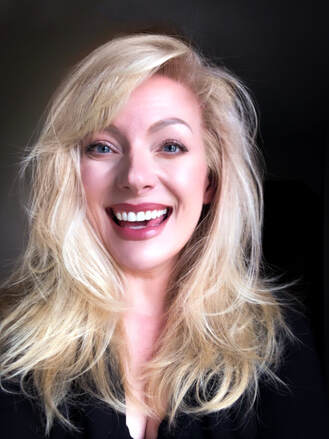
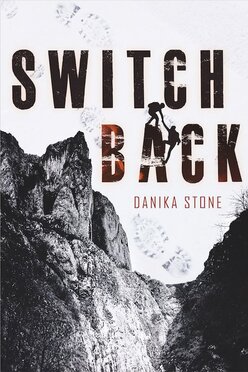


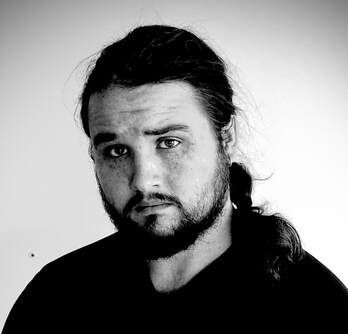

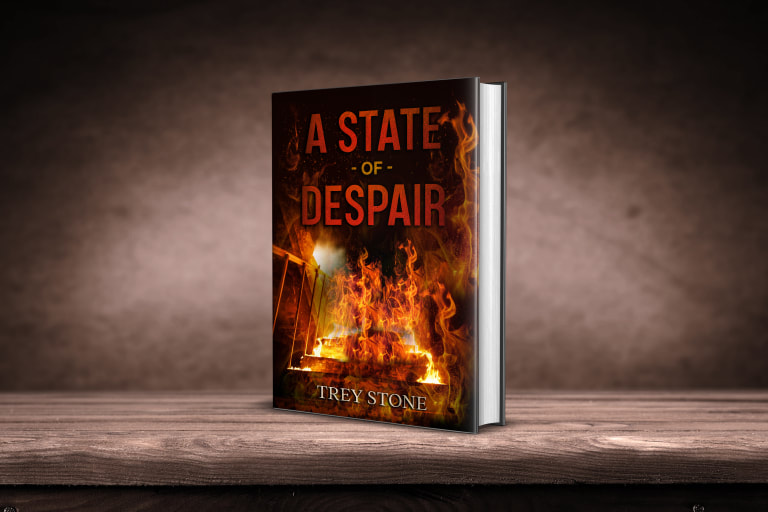
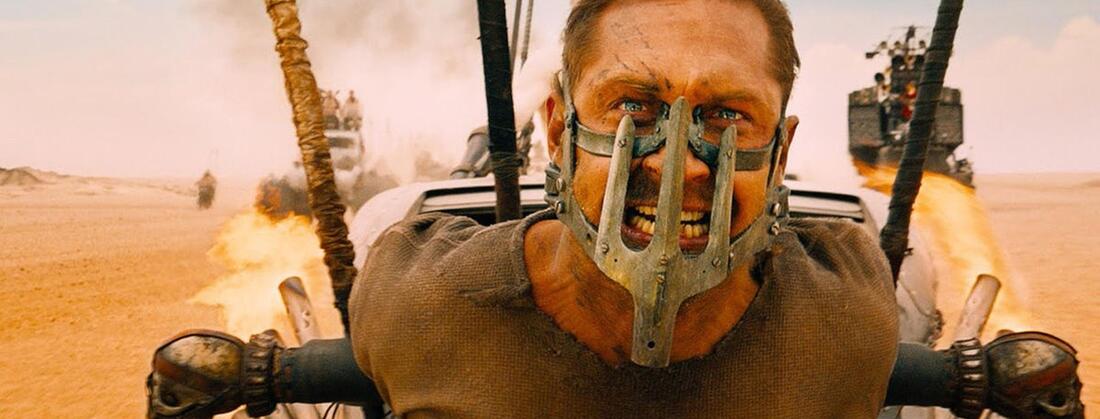
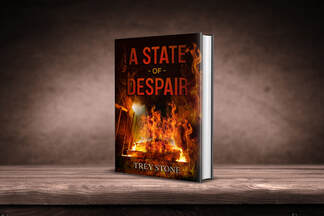
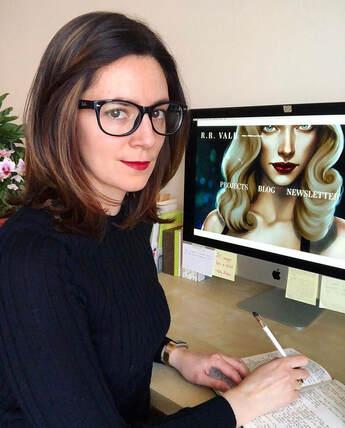
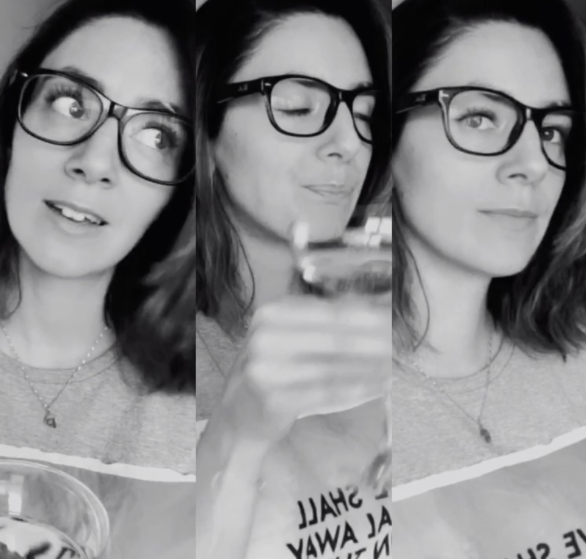

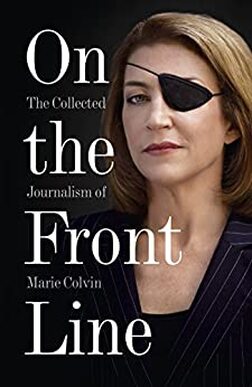
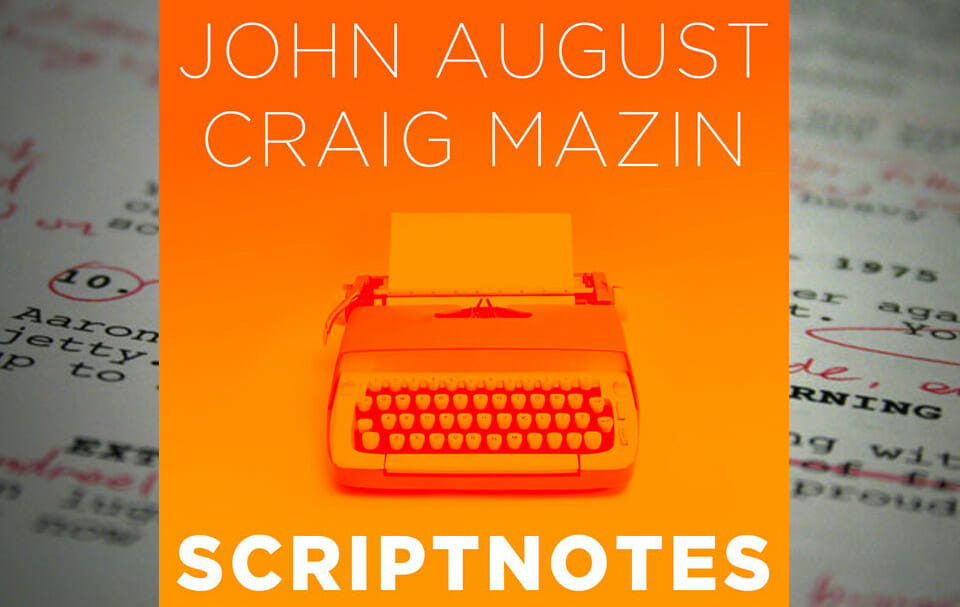
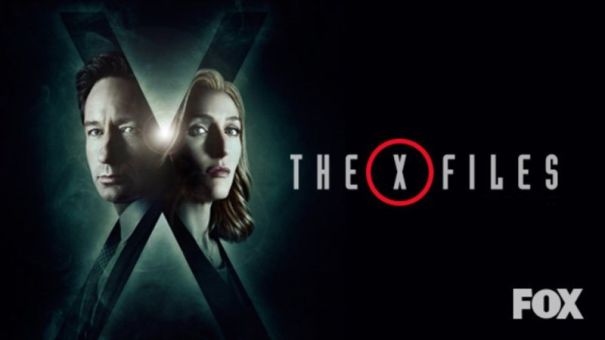
 RSS Feed
RSS Feed
